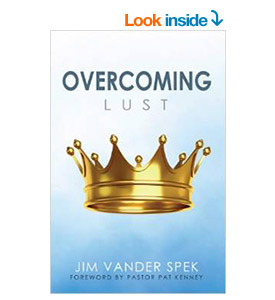Dr. James Dobson wrote the following open letter years ago and it was posted on the website of Focus on the Family. It has since been removed. I have received permission to repost it here on the condition that I make it clear that it was written long ago and has not been updated to be fully applicable now.
Please see the related post: Talking with your Kids about Masturbation
Here is Dr. James Dobson’s initial letter regarding masturbation:
I don’t think you should invade that private world at all unless there are unique circumstances that lead you to do so. I offer that advice while acknowledging that masturbation is a highly controversial subject and Christian leaders differ widely in their perspectives on it. I will answer your question but hope you understand that some Bible scholars will disagree emphatically with what I will say.
First, let’s consider masturbation from a medical perspective. We can say without fear of contradiction that there is no scientific evidence to indicate that this act is harmful to the body. Despite terrifying warnings given to young people historically, it does not cause blindness, weakness, mental retardation, or any other physical problem. If it did, the entire male population and about half of females would be blind, weak, simpleminded, and sick. Between 95 and 98 percent of all boys engage in this practice — and the rest have been known to lie. It is as close to being a universal behavior as is likely to occur. A lesser but still significant percentage of girls also engage in what was once called “self-gratification.”
As for the emotional consequences of masturbation, only four circumstances should give us cause for concern. The first is when it is associated with oppressive guilt from which the individual can’t escape. That guilt has the potential to do considerable psychological and spiritual damage. Boys and girls who labor under divine condemnation can gradually become convinced that even God couldn’t love them. They promise a thousand times with great sincerity never again to commit this despicable act. Then a week or two passes, or perhaps several months. Eventually, the hormonal pressure accumulates until nearly every waking moment reverberates with sexual desire. Finally, in a moment (and I do mean a moment) of weakness, it happens again. What then, dear friend? Tell me what a young person says to God after he or she has just broken the one thousand first solemn promise to Him? I am convinced that some teenagers have thrown over their faith because of their inability to please God at this point of masturbation.
The second circumstance in which masturbation might have harmful implications is when it becomes extremely obsessive. That is more likely to occur when it has been understood by the individual to be “forbidden fruit.” I believe the best way to prevent that kind of obsessive response is for adults not to emphasize or condemn it. Regardless of what you do, you will not stop the practice of masturbation in your teenagers. That is a certainty. You’ll just drive it underground — or under covers. Nothing works as a “cure.” Cold showers, lots of exercise, many activities, and awesome threats are ineffective. Attempting to suppress this act is one campaign that is destined to fail — so why wage it?
The third situation around which we should be concerned is when the young person becomes addicted to pornographic material. The kind of obscenity available to teenagers today has the capacity to grab and hold a boy for the rest of his life. Parents will want to intervene if there is evidence that their son or daughter is heading down that well-worn path.
The fourth concern about masturbation refers not to adolescents but to us as adults. This habit has the capacity to follow us into marriage and become a substitution for healthy sexual relations between a husband and wife. This, I believe, is what the apostle Paul meant when he instructed us not to “deprive” one another as marital partners: “Do not deprive each other except by mutual consent and for a time, so that you may devote yourselves to prayer. Then come together again so that Satan will not tempt you because of your lack of self-control” (1 Corinthians 7:5).
As for the spiritual implications of masturbation, I will have to defer to the theologians for a more definitive response. It is interesting to me, however, that Scripture does not address this subject except for a single reference in the Old Testament to a man named Onan. He interrupted sexual intercourse with his sister-in-law and allowed his semen to fall on the ground to keep from producing offspring for his brother, which was his “duty” (Genesis 38:8). Though that verse is often cited as evidence of God’s disapproval of masturbation, the context doesn’t seem to fit.
So, what should parents say to their kids about this subject? My advice is to say nothing after puberty has occurred. You will only cause embarrassment and discomfort. For those who are younger, it would be wise to include the subject of masturbation in the “Preparing for Adolescence” conversation I have recommended on other occasions. I would suggest that parents talk to their 12- or 13-year-old boys, especially, in the same general way my mother and father discussed this subject with me. We were riding in the car, and my dad said, “Jim, when I was a boy, I worried so much about masturbation. It really became a scary thing for me because I thought God was condemning me for what I couldn’t help. So I’m telling you now that I hope you don’t feel the need to engage in this act when you reach the teen years, but if you do, you shouldn’t be too concerned about it. I don’t believe it has much to do with your relationship with God.”
What a kind thing my father did for me that night in the car. He was a very conservative minister who never compromised his standards of morality to the day of his death. He stood like a rock for biblical principles and commandments. Yet he cared enough about me to lift from my shoulders the burden of guilt that nearly destroyed some of my friends in the church. This kind of “reasonable” faith taught to me by my parents is one of the primary reasons I never felt it necessary to rebel against parental authority or defy God.
Well, those are my views, for what they are worth. I know my recommendations will be inflammatory to some people. If you are one of them, please forgive me. I can only offer the best advice of which I’m capable. I pray that in this instance, I am right.





